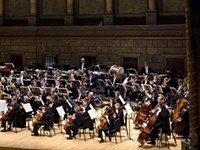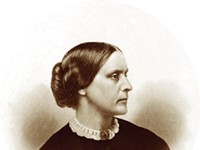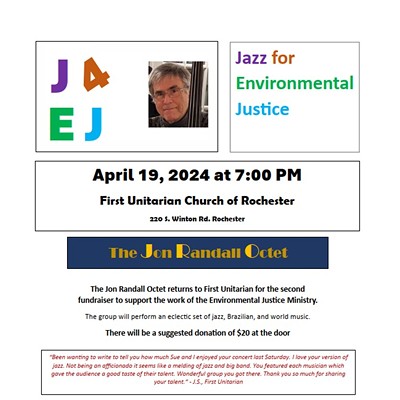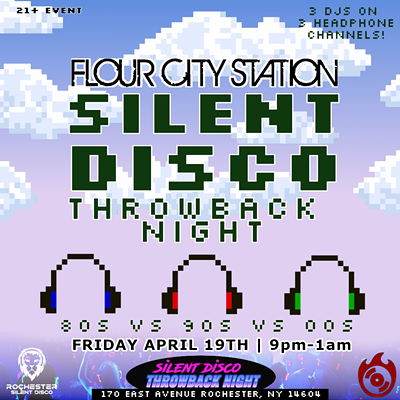[
{
"name": "500x250 Ad",
"insertPoint": "5",
"component": "15667920",
"parentWrapperClass": "",
"requiredCountToDisplay": "1"
}
]
Maybe it was the time difference between Rochester and Los Angeles, or maybe his management made a mistake, but I knew I was calling trumpeter Arturo Sandoval a bit too early when he answered the phone in a groggy voice. He suggested calling back in 10 minutes, so I did.
"I just took a Cuban coffee and I'm fully up now," said a suddenly vibrant Sandoval. Sandoval plays at Kodak Hall on Sunday, November 2.
Aha! So that's the secret ingredient that enables Sandoval to play impossibly complicated solos with clarity and leap to the higher register with a single bound. Actually, it turns out his extraordinary chops did not come without a great deal of struggle.
"Trumpet is a merciless instrument," says Sandoval, who was born in Artemisa, Cuba, in 1949. "You need such dedication because the instrument doesn't give you a break. You have to be 100 percent dedicated and take it so seriously because one day you will practice and the trumpet will send you a bill the day after."
Sandoval can still recall the day he first picked up the trumpet in 1960. It sounded horrible, he admits, but he stuck with it for one reason.
"I'm really in love with the sound of the instrument," Sandoval says. "The sound of the trumpet is so flexible. You can whisper so soft and you can make a big noise — the loudest instrument in the orchestra. That gives you all kinds of possibilities; you can express yourself 100 percent."
But even after becoming a virtuoso, Sandoval was clueless about his future direction.
"I was playing for a number of years when a journalist who played saxophone and was an aficionado, said to me, 'Did you ever hear jazz music?' I said 'No, what's that?' He played me a Dizzy Gillespie and Charlie Parker record. That was it. It made such an impression."
Sandoval played in a Cuban big band in the late-1960's and early 70's. Then, in 1974, he and several fellow musicians formed Irakere, a group that would provide more opportunities to improvise and explore different kinds of music. As long as they didn't speak the music's name.
"We couldn't say that we were playing jazz, to be honest, because they called that the music of the Yankee Imperialists," Sandoval says. "They related it to politics. It was a very difficult time."
Everything changed for Sandoval in 1977 when Gillespie stopped in Cuba for 48 hours.
"That was a key point in my life," Sandoval says. "To meet my hero and become a close friend, I always considered that a gift from God. We established, after that, a very close relationship. Until he passed away [in 1993], I was playing with him. It was such a privilege."
Gillespie helped him forge a career that took Sandoval and his horn around the world. In 1990 he made a crucial decision: He would not return to Cuba. Sandoval would defect to the United States.
"It was a tough decision but absolutely necessary because I felt like I was wasting my time in Cuba," Sandoval says. "I was doing absolutely nothing. I was over 40 years old and I couldn't do anything with my career because I was completely tied with all the limitations and frustrations of such a dictatorship and really didn't have access to civilization in general."
After becoming a U.S. citizen, he has never looked back.
"I'm more than happy: I'm thrilled," Sandoval says. "I feel so blessed because we live in this wonderful country. We love and respect and enjoy every second of our time here."
In late September, an article appeared in "The Nation" offering advice to President Obama on how he could improve relations with Cuba. Sandoval immediately wrote a passionate response online.
"This article is an offense to all of us Cubans who have been suffering for 55 years with the longest dictatorship human kind has experienced," he wrote. He went on to discuss "how this government has converted this glorious island into a country of 11 million people living in misery and hopelessness..." and added, "I lived in the island until I was 41 years of age, so I experienced all of this in my own flesh and blood. What we really need in Cuba is to establish respect for human rights and establish a REAL democracy with REAL free elections."
Sandoval connects the freedom he enjoys in America with his approach to music.
"Every time I play a solo, I'm sharing with the people my feelings without any kind of restriction or limitation or any kind of fear of what somebody could say or think about it. It's a complete manifestation of freedom."
After winning 10 Grammy Awards and, last year, the Presidential Medal of Freedom, Sandoval has had a career overflowing with highlights. The most recent one was six weeks ago when the New York Yankees invited him to play "God Bless America" on September 11 at Yankee Stadium.
"That was something," Sandoval says. "I felt such big emotion. I was so proud to do it. It was a sentimental moment. There were officers who participated in September 11. I felt more Gringo than ever."
Sandoval, who lives in Los Angeles with his family, keeps busy performing, recording and writing scores for movies. But when asked about his future plans, he demurs.
"I concentrate in this 24 hours now," Sandoval says. "The next day, it doesn't matter how hard you make plans, God has his own plan for you. It doesn't matter if you think you have control of that, probably something different is going to happen. I don't waste time thinking about what's going to happen tomorrow; I concentrate on today. That's part of our life — we're ready to improvise on the spot."
Speaking of...
Latest in Music Features
More by Ron Netsky
-
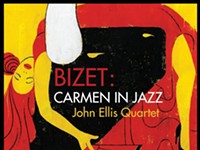
Album Review | 'Bizet: Carmen in Jazz'
Mar 26, 2024 -
'To Swing Is the Thing" by Mike Melito
Aug 10, 2023 - More »

